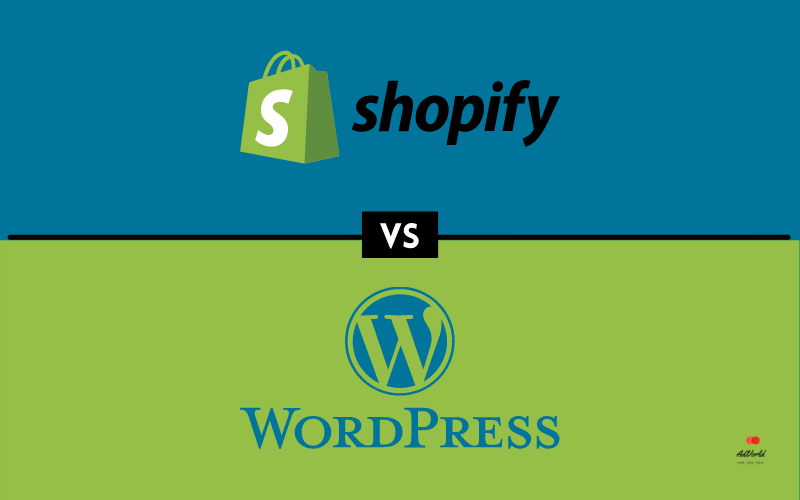Which is better- Shopify or WordPress?
This is the common question asked by many, especially start-ups. But before going any further, let’s take a quick overview of what a landing page is and why is it important.
In simple words, a landing page is the first page you visit or “land on” when you click on a link on different places on the web. Landing pages, unlike other web pages, have a particular purpose or a goal; a purpose, also known as a CTA (Call-to-Action), can be anything from capturing leads to attracting potential customers to the products or services you are selling them. Thus making landing pages of two types-
- A lead generation page
- A click-through page
Shopify is an out-an-out ecommerce platform that helps you in building and launching your own online store. With Shopify, you don’t need to buy web hosting as it provides a complete hosted solution. Also, coding skills or not, you can easily create a store for yourselves. Being Software as a Service (SaaS) tool, all you need to manage your store is an internet connection and a web browser, and of course you need a monthly amount to use it.
WordPress, on the contrary, is an open-source platform; you can install it for free on your server but there are definitely hosting and domain charges and plugin costs. For example, if you planning to add ecommerce feature to your website, you need to add WooCommerce or Shopify, maybe, to do the same.
Let’s discuss this comparison in more depth to see which one’s better when it comes to a landing page.
Shopify or WordPress- Comparison
| Shopify | WordPress | |
| Templates | An upmarket and easily-edited set of themes is available.It offers 9 free and 64 paid themes. | Provides plenty of high quality themes to choose from. |
| Responsiveness | Responsive themes; they automatically adjust to display perfectly on any device. | Responsive themes but it’s better to cross-check before installing any template because there still are some themes which aren’t suitable for all platforms. |
| Interface | Cleaner in appearance. Easy content editing and publishing. | Easy content editing and publishing. |
| Content Management | Does not provide this feature.Less flexible when it comes to using categories and tags.The editor, WYSIWG, does not have drag-and-drop feature. To use this feature you have to invest in a third party app. | The system stores every version of a page or a post and allows you to rollback to any one of them at any time.Allows you to use categories and tags in a more flexible way (you can also create your own).Its editor, Gutenburg, has an inbuilt drag-and-drop feature, thus offering more flexibility in designing the pages. |
| Flexibility | Less flexible. | More flexible. |
| Ecommerce Functionality | It’s a dedicated online store builder, thus giving it an immediate advantage. | It does not have an inbuilt ecommerce tool. You have to use a third party option. |
| SEO | Allows you to do the SEO of your page/s easily except for the fact that you can’t get “clean” URLs because this platform adds prefixes to them. | Allows you to do the SEO of your page/s easily. One slight advantage that WordPress has is the option for creating short, simple and clean URLs that Search Engines like. |
| Maintenance and Security | The technical aspects are taken care of by the company. | YOU are in-charge of everything; whether or not you’re using an updated version, correct configuration of the server, etc. |
Summary
Well, according to the above-discussed points, choosing a well-established platform completely depends on your requirements.
If you have any other thoughts or points to add, please let us know in the comments below. We’d love to hear from you!
